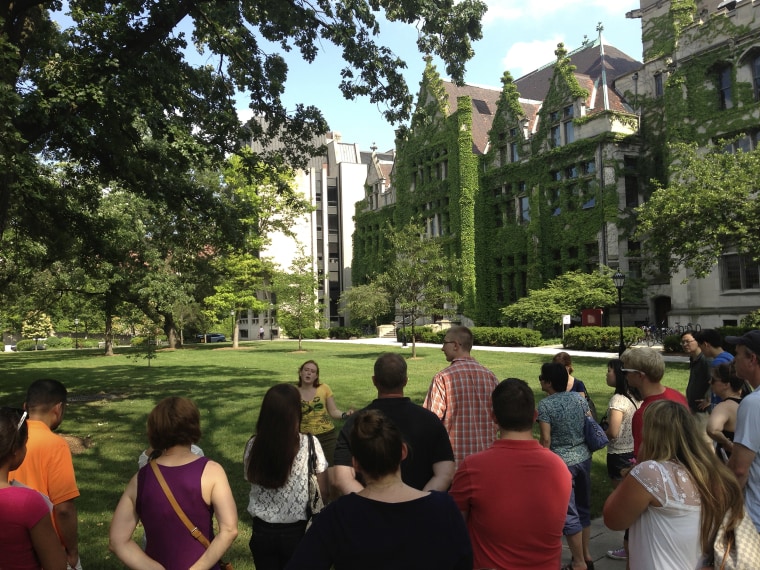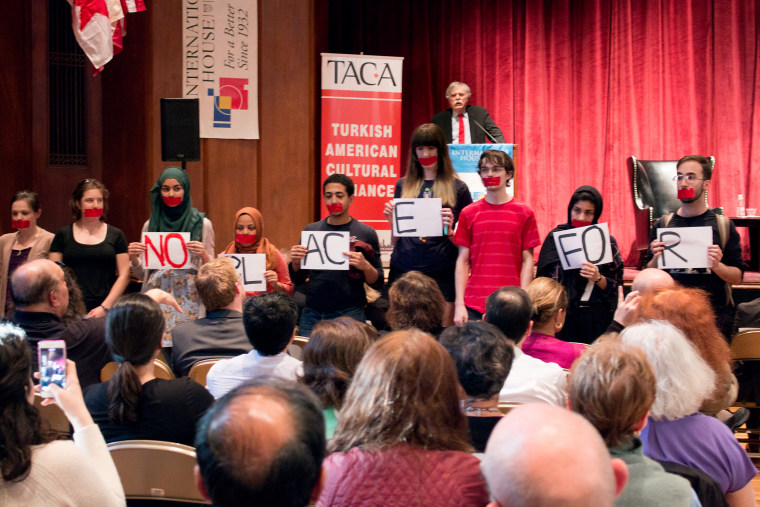The University of Chicago won't condone so-called safe spaces or trigger warnings on campus, the dean informed incoming freshmen this week amid a growing national conversation about free expression at colleges and universities.
"Once here you will discover that one of the University of Chicago's defining characteristics is our commitment to freedom of inquiry and expression," read the letter from Dean of Students John "Jay" Ellison, sent Wednesday as part of the Class of 2020's welcome package. "Members of our community are encouraged to speak, write, listen, challenge and learn, without fear of censorship."
As a result, Ellison wrote, "we do not support so-called 'trigger warnings,' we do not cancel invited speakers because their topics might prove controversial, and we do not condone the creation of intellectual 'safe spaces' where individuals can retreat from ideas and perspectives at odds with their own."
The letter comes amid a wave of calls across campuses nationwide for safe spaces, which give students an opportunity to speak in arenas where they're not confronted by opposing viewpoints that make them uncomfortable. Trigger warnings, which some professors have started adding to their syllabuses, let prospective students know there is content they may find disturbing in the class.
Related: The 'Right Now' Generation: What Defines the Class of 2020
At the University of Chicago — a private research university with more than 5,800 undergrads and nearly 10,000 graduate students — calls for space spaces interrupted or shut down several high-profile speakers earlier in 2016, according to The Chicago Maroon, the campus newspaper.

Ellison told incoming freshmen the university expects its students to debate and disagree, even if "at times this may challenge you and even cause discomfort."
"Fostering the free exchange of ideas reinforces a related University policy — building a campus that welcomes people of all backgrounds. Diversity of opinion and background is a fundamental strength of our community. The members of our community must have the freedom to espouse and explore a wide range of ideas."
Related: Confusing Laws Keep College Students Away From the Polls
Also included in the package to students was a 2015 faculty report on University of Chicago's legacy of free expression and a copy of the book "Academic Freedom and the Modern University: The Experience of the University of Chicago."
"It's about time that a university administration stood up to the bullies who are trying to repress free speech on campus."
The letter prompted a firestorm online, with many praising the university for not coddling students and others arguing that shielding students from what many perceive as bigotry doesn't keep mean they're prevented from getting a good education.
Ellison did not comment to NBC News. Jeremy Manier, a spokesman for the university, told NBC News, "We want our students to have an understanding from the outset of the University’s intellectual values."
Freedom of expression is a hot issue on college campuses. A survey by the Knight Foundation in April found that 54 percent of students nationwide feel the climate on their campus prevents people from saying what they believe for fear others might find it offensive.
Three speakers at the University of Chicago were forced to leave or were interrupted by protesters between February and April of this year, according to The Chicago Maroon: Cook County State’s Attorney Anita Alvarez; Palestinian human rights activist Bassem Eid; and University of Louisville professor Justin McCarthy, who students said denies the Armenian genocide.

Constitutional law experts praised the University of Chicago's move.
"It's about time that a university administration stood up to the bullies who are trying to repress free speech on campus," renowned civil liberties lawyer and Harvard law professor Alan Dershowitz told NBC News. "I'm ashamed that Harvard was not the first to do it."
As a private institution, the University of Chicago isn't bound by the First Amendment like a public university would be, the experts said. But even for public universities, the decision wouldn't be a violation of free speech.
"If it said, 'We are going to shut down all conservative speech or all speech that offends students,' it wouldn't be violating the First Amendment. It would be violating basic academic principles and would be undermining what it is that makes a modern university great," said Eugene Volokh, a UCLA professor of First Amendment law. "Even at a public university, it seems to be more a matter of what makes for a great university and for preserving academic freedom and open discourse."
